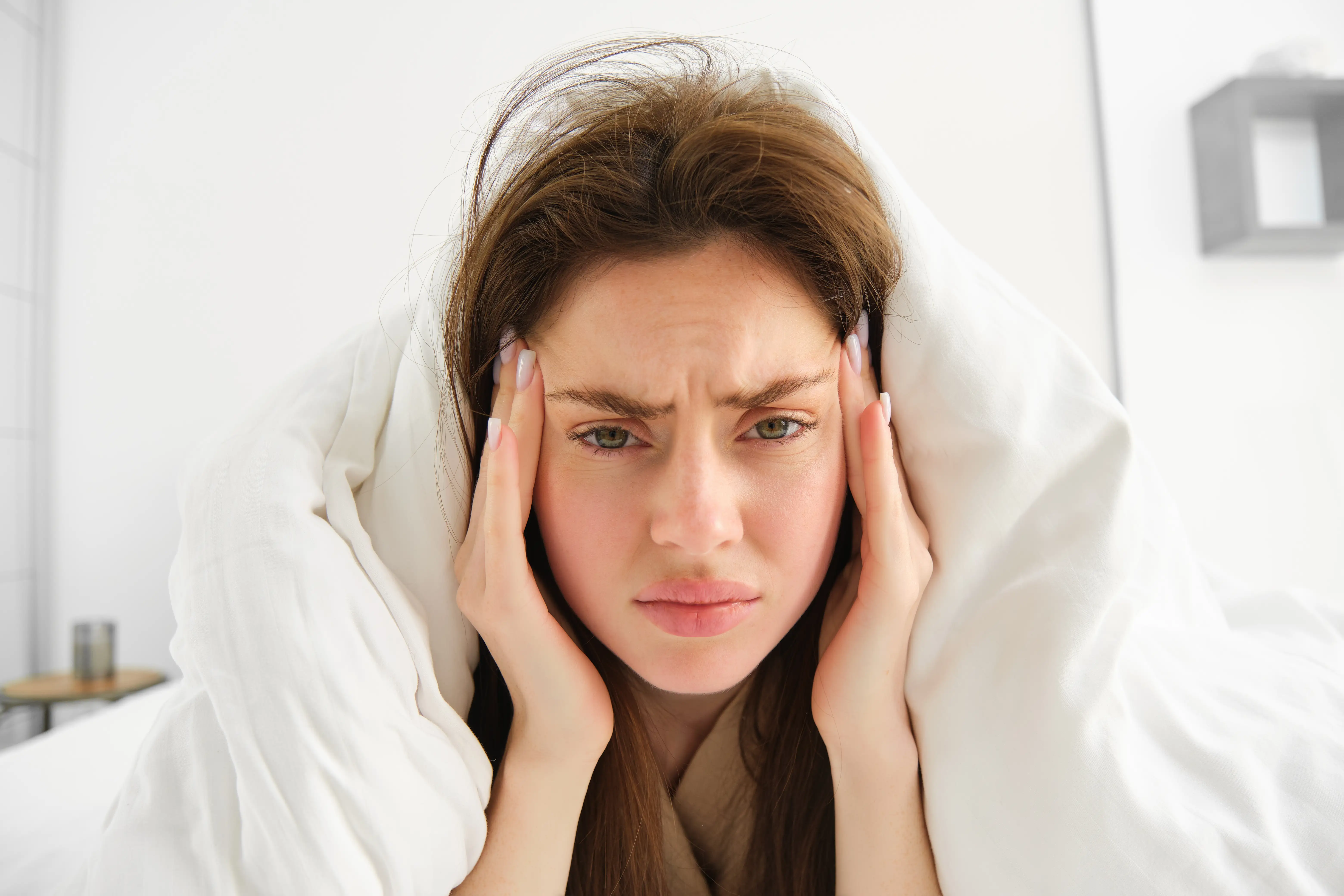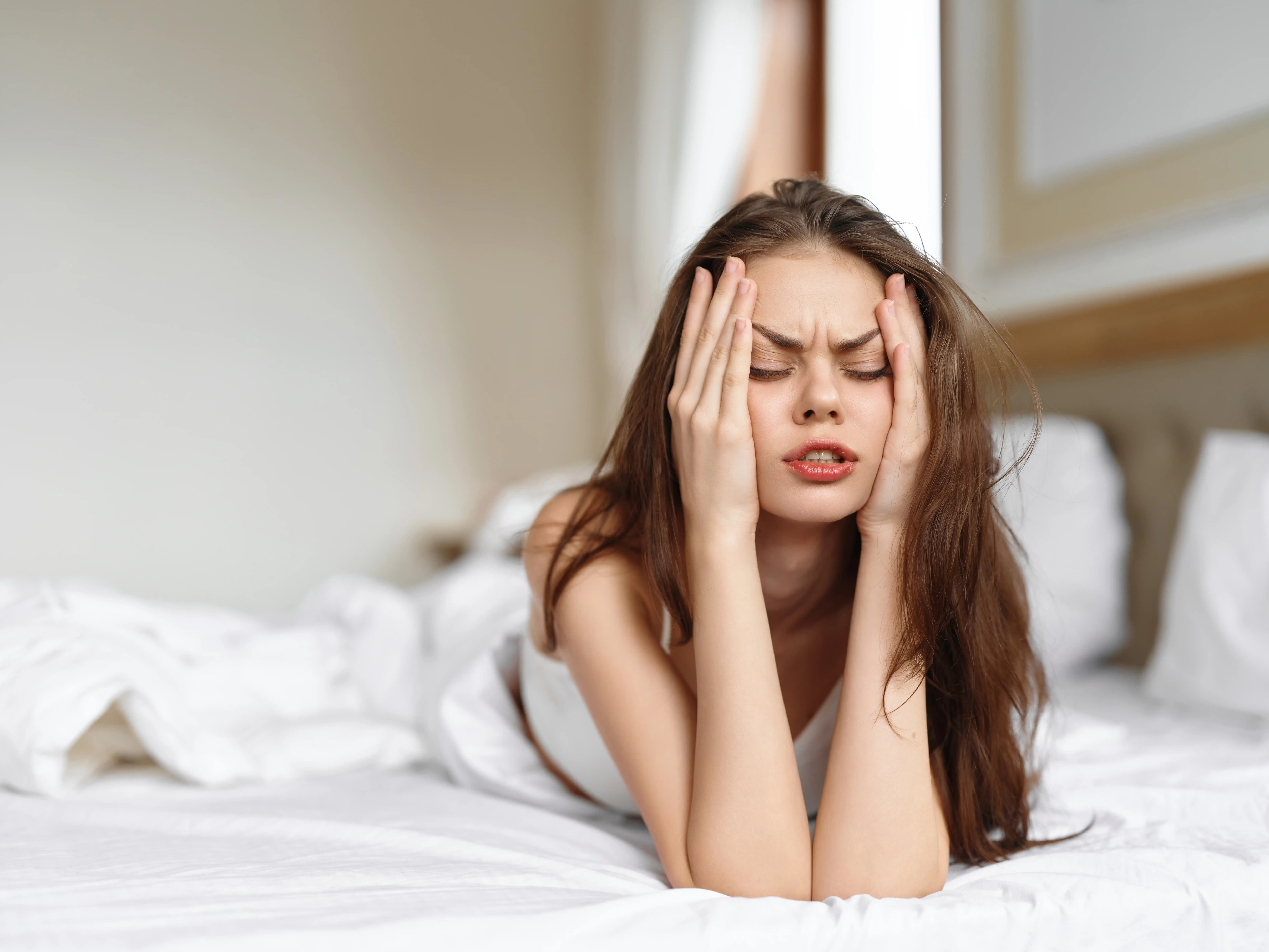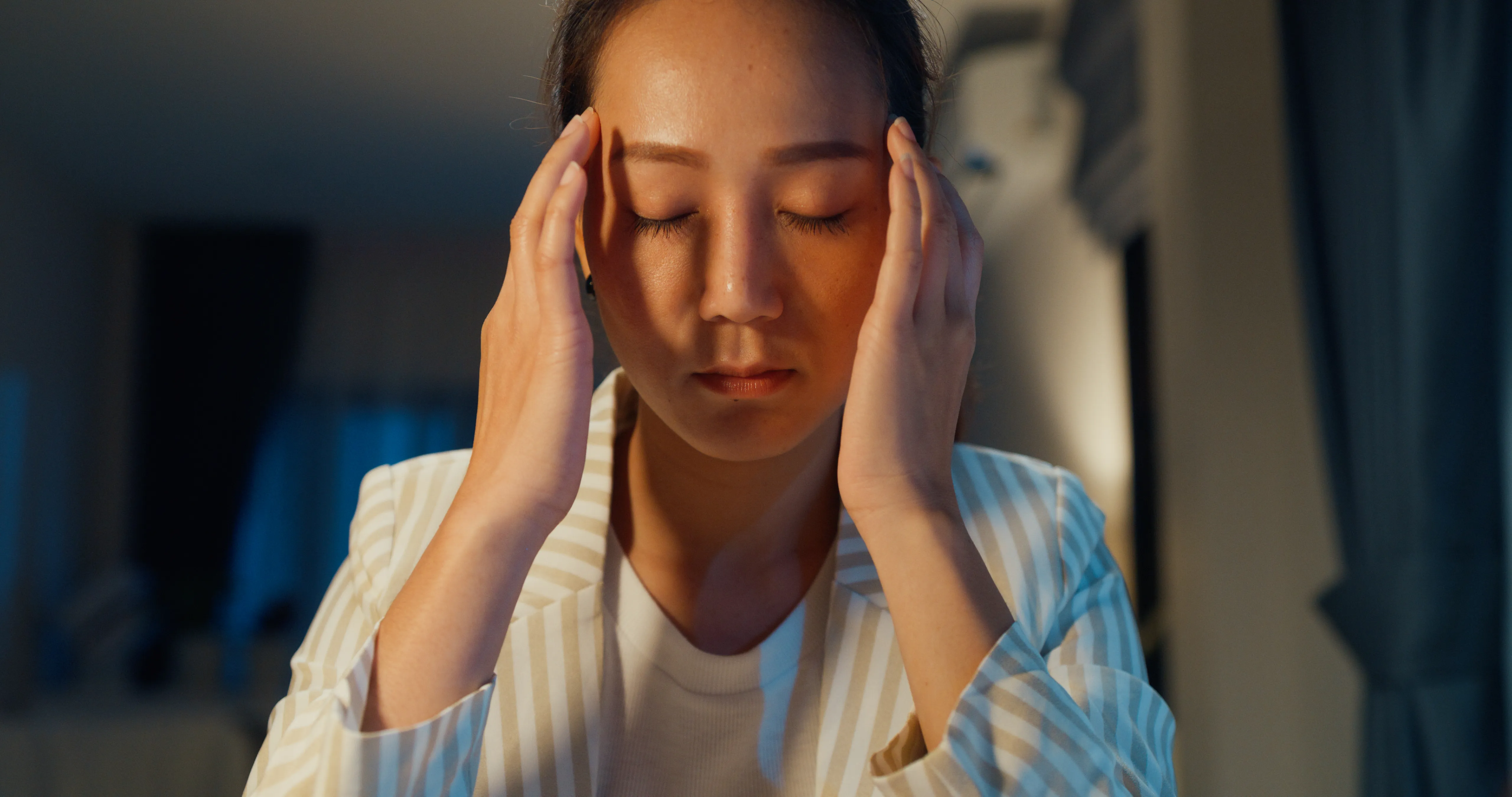
Headaches are a common issue that affects people all over the world. While many are mild and go away with rest or medication, some can be more frequent or intense, disrupting daily routines and lowering the quality of life.
Morning headaches, in particular, can be especially frustrating. Waking up with pain can leave you feeling drained before the day even begins and may take a toll on your physical health over time.
There are several reasons why these headaches happen, ranging from poor sleep habits and stress to more serious underlying health conditions. That is why figuring out the cause is key to managing them effectively.
In the following sections, we will break down the common causes, types, and treatment options for morning headaches, along with practical tips to help you start your day feeling better, more energized, and in control of both your routine and your physical well-being.
Common Causes of Morning Headaches
Morning headaches can happen for many reasons, ranging from poor sleep habits to underlying health issues. Figuring out what is behind them is key to finding the right treatment and getting your day started right. Here are some of the most common causes:
- Sleep Apnea: Sleep apnea is a condition where breathing repeatedly stops and starts during the night. This interrupts deep sleep and reduces oxygen levels, often leading to headaches in the morning, along with grogginess and fatigue. It is especially common in people who snore loudly or struggle with breathing during sleep. Using a CPAP (Continuous Positive Airway Pressure) machine can help manage sleep apnea and reduce morning headaches.
- Sleep Deprivation: Not getting enough sleep is one of the most common triggers for a headache every morning. Whether it is from a packed schedule or trouble falling asleep, the body does not get the recovery time it needs, leading to increased tension and pain upon waking.
- Insomnia: People with insomnia have trouble falling asleep or staying asleep, which results in poor-quality rest. That disruption in the sleep-wake cycle can lead to waking up with a headache, especially when the body never reaches deep, restorative sleep.
- Circadian Rhythm Disorders: Shift work, jet lag, or irregular sleep schedules can throw off the body’s internal clock. When your circadian rhythm is disrupted, your sleep becomes less restorative, increasing the chances of a headache first thing in the morning.
- Oversleeping: Too much sleep can also cause headaches. Sleeping far beyond your usual routine can disturb your body’s rhythm, leading to that groggy, achy feeling when you finally wake up.
- Migraines: Migraines often strike early in the morning and can come with nausea, sensitivity to light, or even visual disturbances (auras). They are linked to sleep issues, stress, and sometimes hormonal or environmental changes.
- Snoring: Frequent or loud snoring, even without sleep apnea, can lead to fragmented sleep and reduced oxygen intake. That disturbed rest can leave you waking up with a headache and feeling far from refreshed.
- Bruxism (Teeth Grinding): Grinding or clenching your teeth while you sleep puts stress on your jaw and head muscles. This tension often leads to morning headaches, sometimes alongside jaw soreness or stiffness. Bruxism is commonly linked to stress or anxiety.
- Muscle Tension: Tightness in your neck, shoulders, or jaw, often caused by stress or poor posture, can result in tension headaches. If your muscles do not fully relax at night, that discomfort can follow you into the morning.
- Poor Sleep Posture: Sleeping in awkward positions or using the wrong pillow or mattress can strain the neck and upper back muscles. This physical stress can lead to headaches when you wake up, making your mornings feel harder than they should be.
Types of Morning Headaches

Morning headaches are not all the same; they come in different forms, each with its symptoms, causes, and treatment needs. Understanding the type you are dealing with is key to managing it effectively. Here are some of the most common types of morning headaches:
Migraines
Migraines are one of the most intense types of morning headaches. They usually cause throbbing pain, often on one side of the head, and can come with other symptoms like nausea, vomiting, and sensitivity to light or sound.
Morning migraine is often linked to poor sleep, hormonal changes, stress, or environmental triggers like strong smells or bright lights. They can be especially disruptive because they make it hard to start the day with clarity and comfort.
Tension-Type Headaches
Tension headaches are the most common type overall. They are typically described as a dull, constant ache or pressure, often felt across the forehead, temples, or back of the neck.
These headaches are usually triggered by stress, muscle tension, poor posture, or sleeping in an awkward position. Bruxism (teeth grinding) during sleep can also be a factor. Waking up with a tension headache is often linked to tight neck and shoulder muscles that never fully relaxed overnight.
Cluster Headaches
Cluster headaches are rare but extremely painful. They often strike in the early morning hours and cause sharp, burning pain around one eye or one side of the head.
They tend to occur in cycles or clusters, with several headaches happening daily for weeks or months. Other symptoms may include eye redness, tearing, and nasal congestion on the affected side. Though not caused by sleep, they often wake individuals from it, making mornings even harder.
Rebound Headaches (Medication-Overuse Headaches)
These occur when pain relief medications are used too often, especially for chronic headache conditions. If you rely heavily on over-the-counter pain medication like ibuprofen or acetaminophen, you might wake up with a headache as the medication wears off.
This creates a cycle of dependence, where more medication is taken to relieve the pain, only for it to return the next morning. Managing medication use carefully is essential to avoid this type of headache.
Sinus Headaches
Sinus headaches happen when the sinuses become inflamed or infected, often due to allergies, a cold, or sinusitis. The pain is usually located in the forehead, around the eyes, or in the cheeks and is often accompanied by congestion, pressure, and a runny nose.
These headaches can feel worse in the morning because sinus pressure builds up overnight. Triggers include allergens, dry air, and environmental irritants.
Hypnic Headaches
Also known as “alarm-clock headaches,” hypnic headaches are a rare type that wake people up from sleep, often at the same time each night. They cause a dull, throbbing pain, usually at the front of the head, and typically last 30 minutes to an hour.
The exact cause is not well understood, but they are more common in people over age 50 and may be associated with sleep disorders like insomnia. Though rare, they can have a significant impact on sleep quality and morning energy levels.
Factors That Increase Your Risk of Morning Headaches

Certain factors can make you more likely to experience morning headaches. These range from age and gender to lifestyle habits and underlying health conditions. Understanding what might be triggering your headaches is a key step toward managing them more effectively.
Demographic Factors
Multiple demographic factors increase your risk of dealing with morning headaches, mostly from the following:
- Age: As we get older, the types and frequency of headaches we experience can change. Older adults may be more prone to tension-type headaches or migraines, and sleep issues like sleep apnea tend to become more common with age, both of which can lead to morning headaches.
- Gender: Men and women experience headaches differently. Women are more likely to suffer from migraines, especially during hormonal changes like menstruation, pregnancy, or menopause. On the other hand, men are more prone to cluster headaches. Hormone levels and sleep patterns may both play a role in these gender differences.
Lifestyle Factors
Several lifestyle habits can trigger morning headaches, including:
- Caffeine Intake: Caffeine can both relieve and contribute to headaches. While a small amount may help relieve a headache, too much caffeine, or withdrawal from it, can trigger headaches, especially in the morning. If your body is used to regular caffeine and does not get it overnight, you may wake up with a pounding head.
- Alcohol Consumption: Drinking alcohol, particularly in the evening, can cause dehydration and disrupt normal sleep cycles, two key contributors to morning headaches. Alcohol may also worsen conditions like sleep apnea and is a common cause of hangover-related headaches.
- Stress: Chronic stress is one of the most significant lifestyle-related triggers for morning headaches. It can cause muscle tension, particularly in the neck and shoulders, which contributes to headache pain. Stress also negatively affects sleep quality, creating a cycle that increases the risk of waking up with a headache. Incorporating relaxation techniques, physical activity, and mindfulness practices can help manage stress effectively.
Health Conditions
Certain health conditions can increase the risk of morning headaches, such as:
- Hypertension (High Blood Pressure): Elevated blood pressure can lead to increased pressure in blood vessels, resulting in headaches, especially in the morning when changes in circulation occur during sleep. Properly managing hypertension is important in reducing this risk.
- Anxiety: Anxiety disorders are closely linked to morning headaches, particularly of the tension-type variety. Anxiety can cause muscle tension and disrupt sleep, both of which are contributing factors. Addressing anxiety through therapy, stress-reduction techniques, or medication may help decrease the frequency of headaches.
- Depression: Depression is another mental health condition commonly associated with chronic headaches, including those that occur in the morning. It often leads to poor sleep, physical tension, and neurochemical imbalances that can trigger headache symptoms. Treating the underlying depression can significantly improve headache outcomes.
Treatment and Management of Morning Headaches
Effectively managing morning headaches requires a well-rounded approach that addresses the underlying causes, lifestyle factors, and individual symptoms.
Combining lifestyle adjustments, home remedies, medical treatments, and targeted therapies can significantly reduce both the frequency and intensity of these headaches, leading to improved overall well-being and a more productive start to each day.
Lifestyle Changes and Sleep Environment
Making intentional changes to your daily habits and sleep environment can have a substantial impact on morning headache prevention.
- Improve Sleep Hygiene: Establishing a consistent and healthy nighttime routine is one of the most effective ways to prevent morning headaches. Avoid caffeine and electronic screens at least an hour before bed, create a calming pre-sleep routine, and ensure your sleep environment is dark, cool, and quiet. Better sleep hygiene and quality sleep support the body’s ability to recover and reduce the likelihood of waking with headache symptoms.
- Set a Regular Sleep Schedule: Maintaining consistent sleep and wake times helps regulate your circadian rhythm and supports better sleep quality. A predictable sleep schedule minimizes disruptions in rest and reduces the risk of sleep-related headaches.
- Caffeine and Alcohol Limitation: Excessive caffeine and alcohol intake can disrupt sleep and contribute to morning headaches. Caffeine, especially when consumed late in the day, can lead to dehydration and withdrawal-related headaches. Alcohol can worsen sleep quality and exacerbate conditions like sleep apnea. Moderation is key in preventing these triggers.
- Choosing the Right Mattress: A mattress that offers proper spinal alignment and support can prevent muscular tension during sleep. If you often wake up with stiffness or back pain, your mattress may be contributing to your morning headaches.
- Selecting the Ideal Pillow: Your pillow should support the natural curve of your neck and match your sleep position, whether you sleep on your back, side, or stomach. Proper head and neck alignment helps reduce tension and the risk of waking with a headache.
- Regular Exercise: Exercise improves circulation, releases natural pain-relieving endorphins, and reduces stress, all of which help prevent morning headaches. Moderate activities like walking, yoga, or swimming can enhance sleep quality and overall health.
Home Remedies for Morning Headaches
At-home remedies can provide quick, accessible relief from morning headache symptoms.
- Drinking Water Immediately Upon Waking: Start your morning with a glass of water. Dehydration is a common cause of headaches, and replenishing fluids first thing in the day can ease or prevent symptoms.
- Gentle Neck and Shoulder Stretches: Tension in the neck and shoulders often contributes to headaches. Simple stretching exercises upon waking can release muscle tightness and reduce discomfort.
- Applying Cold or Warm Compresses: Cold compresses help reduce inflammation and are especially useful for migraines. Warm compresses, on the other hand, can relax tight muscles and are more effective for tension-type headaches.
- Herbal and Natural Remedies: Teas such as peppermint, ginger, or chamomile may help reduce headache symptoms through their soothing, anti-inflammatory effects. Aromatherapy using essential oils like lavender or eucalyptus may also promote relaxation and relieve pain.
Medications and Therapies
When lifestyle changes and home remedies are not enough, medications and targeted therapies may be necessary.
- Over-the-Counter Medications: Non-prescription pain relievers like ibuprofen, aspirin, or acetaminophen can be effective for occasional, mild headaches. These medications should be used responsibly to avoid overuse.
- Prescribed Medications: For more severe or persistent headaches, healthcare providers may prescribe medications such as triptans (for migraine) or medications to treat underlying sleep disorders. Addressing both the headache and its root cause can improve long-term outcomes.
- Cognitive-Behavioral Therapy for Insomnia (CBT-I): CBT-I is a proven treatment for insomnia that focuses on changing thought patterns and behaviors that negatively affect sleep. For individuals whose headaches are linked to poor sleep, CBT-I can offer long-term relief.
- Relaxation Techniques: Deep breathing exercises, progressive muscle relaxation, and guided meditation can help manage stress and reduce tension-type headaches. Practicing these techniques regularly can support both mental and physical health.
- Stress Management: Chronic stress is a known trigger for headaches. Incorporating stress-relieving activities like yoga, journaling, mindfulness, or counseling can improve resilience and lower the frequency of morning headaches.
When to See a Doctor for Morning Headaches
While occasional morning headaches may not be cause for concern, certain patterns and symptoms warrant medical attention.
- Frequent or Severe Headaches: If headaches occur regularly or are particularly intense, consult a healthcare provider to rule out underlying conditions and develop an effective treatment plan.
- Neurological Symptoms: Headaches accompanied by visual disturbances, weakness, numbness, or speech difficulties may signal a serious neurological issue and require immediate evaluation.
- Sudden, Intense Headache: A sudden, sharp headache that differs from your usual pattern should not be ignored; it may indicate a medical emergency, such as a stroke or aneurysm.
- Changes in Headache Patterns: Noticeable changes in headache frequency, severity, or duration should be discussed with a healthcare provider, as they may reflect a new or worsening condition.
- Lack of Response to Medications: If over-the-counter medications no longer provide relief, a healthcare provider may recommend prescription options or alternative treatments.
- Impact on Daily Life: When headaches interfere with work, relationships, or daily tasks, it is time to seek professional support. A thorough evaluation can uncover the cause and guide you toward effective relief.
FAQs
Why do I wake up with a headache and neck pain?
Morning headaches and neck pain are often caused by poor sleep posture, teeth grinding (bruxism), or sleep apnea. These issues strain muscles and disrupt sleep. Adjusting your pillow and mattress, improving sleep habits, and managing stress can help relieve symptoms.
How do you fix a morning headache?
To reduce morning headaches, maintain a consistent sleep schedule, stay hydrated, limit caffeine and alcohol, and manage stress. Regular exercise and gentle stretching can also ease muscle tension and improve sleep quality.
What deficiency causes morning headaches?
Deficiencies in magnesium, vitamin D, or fluids (dehydration) may trigger morning headaches. Magnesium helps relax muscles, while vitamin D supports sleep health. Ensuring a balanced diet and proper hydration can help prevent these headaches.
How do I know if my headache is from stress?
Stress-related headaches usually feel like pressure or tightness around the forehead or temples, often with neck or shoulder tension. If they happen during stressful times or after poor sleep, they are likely stress-induced. Relaxation techniques like deep breathing or meditation can help.
Conclusion
Morning headaches can significantly impact your quality of life, making it difficult to start the day feeling refreshed and energized. Whether they stem from poor sleep habits, underlying health issues, or lifestyle-related factors, identifying the root cause is essential for effective relief. Addressing common triggers, such as sleep posture, stress, dehydration, or diet, can play a major role in minimizing symptoms.
By making thoughtful changes to your sleep environment, maintaining a healthy lifestyle, and managing stress, many people experience noticeable improvement. However, if morning headaches become more frequent or severe, it is important to consult a healthcare provider to rule out any serious conditions and explore tailored treatment options. With the right approach, you can take back control of your mornings and support your overall well-being.
Karen Barnard
Karen is a Human Movement Science expert and a certified sports nutrition and massage therapist. At Sleepiverse, she combines her passion for human movement science and sleep health to educate herself and her readers about healthier sleep. In addition to writing articles, Karen manages a fitness studio offering private training, athletic conditioning, and sports massage therapy. She focuses on providing people with a holistic environment for people to reach their health goals, often incorporating stretch therapy to promote mental tranquillity and help people improve their sleep.


